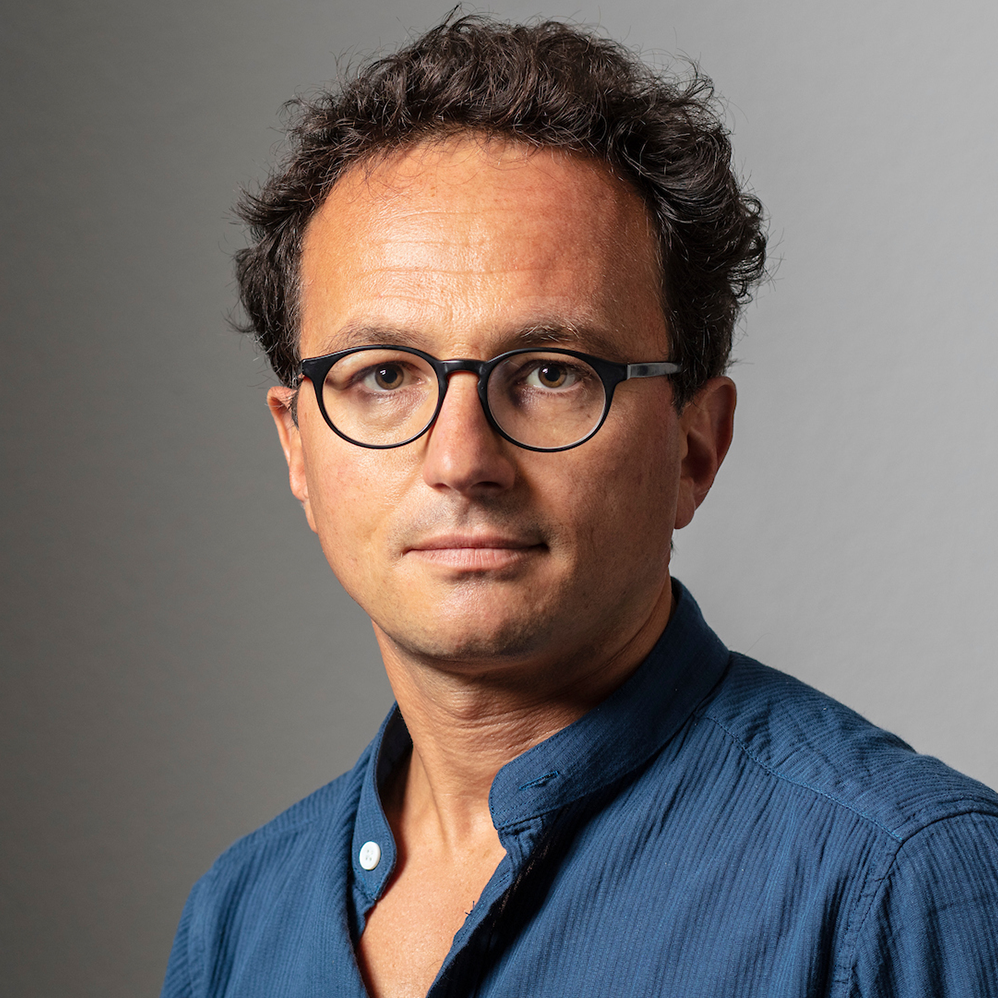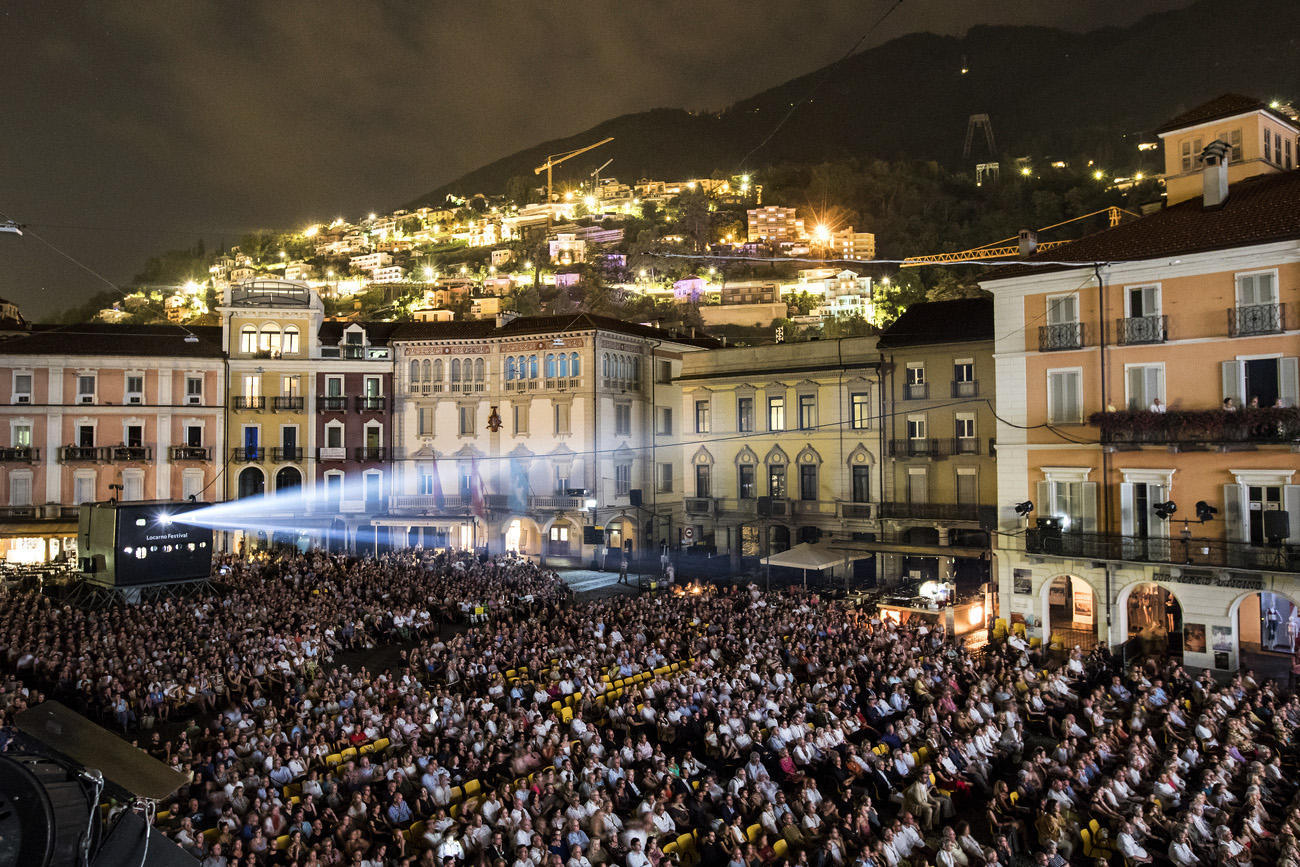The Grand Hotel Locarno – where it all began
Asleep for the past 15 years, the majestic lady that is the Albergo Locarno has briefly opened its doors to offer us a glimpse of the Festival’s history – guided by Frédéric Maire, director of the Cinemathèque Suisse and former artistic director of Locarno Film Festival.
The Grand Hotel, as it was called, opened in 1876 and hosted the negotiations of the Locarno Treaties in 1925 that later resulted in an agreement that was supposed to guarantee peace in Western Europe after the trauma of the First World War.
After the Second World War, a new film festival in the Italian part of Switzerland was planned to counter the one in Venice, whose origins were seen as intimately related to the fascist regime of Mussolini.

But it was chance that made Locarno home to the new film festival: in 1945, in its first edition, the event took place in Lugano.
For its second edition, a few trees in the main venue had to be cut down to set up the screen – but the Lugano locals democratically refused this idea in a referendum. Thus the screen moved to the garden of the Grand Hotel in Locarno which, standing on private grounds, could be rearranged to fit its new cinematic purposes.
The glorious times
At the time, 1,200 viewers could be seated in the Grand Hotel’s garden, with the red VIP chairs (the best ones) closer to the screen.
Even after 1971, when evening screenings were moved to the Piazza Grande town square, the building remained the hotspot of the Festival, where film enthusiasts from all ages and horizons would gather.
During the day, the venue would be buzzing with activity. Just like the decks of a boat, the floors reflected different hierarchical levels: the top floor was reserved for – sometimes famous – guests and industry representatives; the middle was where press conferences and other professional events were held; the ground floor, with its garden, shops and terrace, acted as the Festival’s natural meeting place, with stars and locals mingling in one happy crowd.
The swimming pool was another hotspot: after the last screening of the evening, parties would continue there late into the night. Occasionally, the poolside would also host interviews, such as the memorable occasion when a young Frédéric Maire, currently director of the Cinémathèque Suisse but a radio journalist back then, conducted an interview with Jean Rouch as the filmmaker was splashing around.

More
Grand Hotel Locarno: past and present
Fall from grace
In 2005, the Grand Hotel was closed for good; and finding another venue that could measure up to the charm, presence and grandeur of the place proved to be quite a challenge.
To this day, the mix of people, genres and the unique atmosphere could never quite be replicated – although the Piazza Grande provides a somewhat similar mood of architectural contemplation.
The arcades surrounding the hotel’s entrance, adorned with glamorous pictures of famous faces, formed a majestic backdrop. Nowadays, locked by a fence, the entrance that once welcomed the likes of Marlene Dietrich or Josef von Sternberg is flanked by a McDonalds on the left and a clothes shop on the right. Over the years, between rejected purchase offers and refurbishment plans that never saw the light of day, the Grand Hotel has remained standing, but with its garden overgrown, its terrace covered in moss and turned into a much-loved playground by the local feline population.
Uncertain future
Recently, the Credit Suisse bank estimated the amount that would be necessary to renovate the hotel and put it back in operation: quite a tidy sum, between CHF80 and 100 million ($81.5 and 102 million).
Even if the building is not listed as a historical monumentExternal link, some of the objects inside do still hold a certain value. A few years ago, the furniture was auctioned off; most of those pieces found new homes in the region, except for the giant Murano chandelier hanging in the staircase.
Part of a larger lot of a number of other – albeit much smaller – chandeliers, the Murano piece cannot be sold on its own. Given the size of the object, long considered the biggest of its kind in Europe, it is not about to leave the hall of the Grand Hotel anytime soon.
Nowadays, rare are those who get to take a look behind the hotel’s boarded-up windows, even if attempts have been repeatedly made to have the Grand Hotel reopen just for the Festival period. Only a small handful occasionally have the chance to admire its once majestic interior thanks to the organisation of a one-off press conference or movie shooting.
A frequent subject of curiosity for those who venture towards its gates, the Grand Hotel remains a place of fascination for urbexExternal link explorers and an inspiration for artists alike. It is the topic of the short film Grand Hotel, shot by Giulio Pettenò, a 2019 participant in the Locarno Filmmakers Academy.
For now, its decaying facade, a living memory of the Festival, is still standing straight, oblivious to the bustling city life a few dozen meters away.

In compliance with the JTI standards
More: SWI swissinfo.ch certified by the Journalism Trust Initiative











You can find an overview of ongoing debates with our journalists here . Please join us!
If you want to start a conversation about a topic raised in this article or want to report factual errors, email us at english@swissinfo.ch.